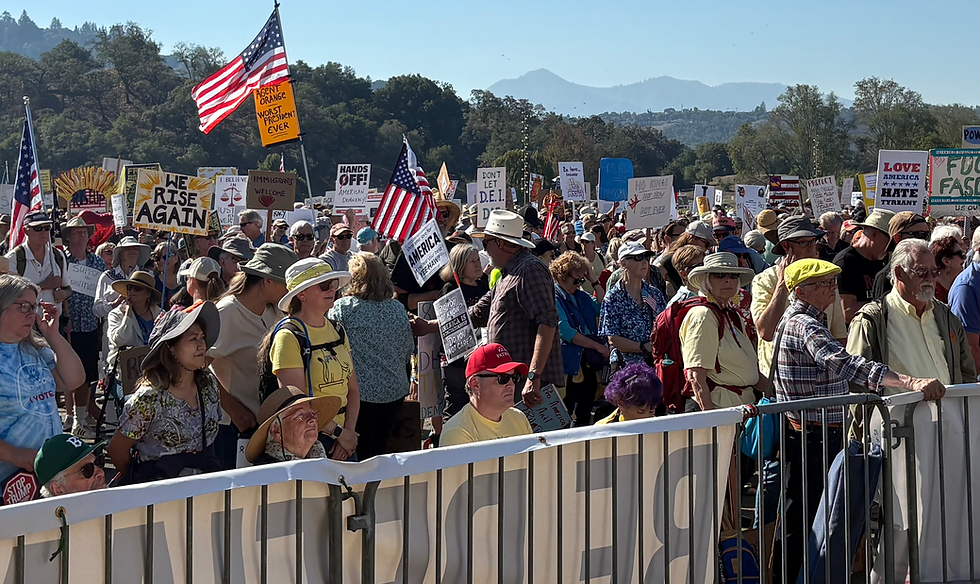Fight for Democracy
- Floyd Thompkins
- Oct 21, 2023
- 3 min read
When politics becomes a sport, a ceaseless jockeying for position, and a place regardless of injury to one or many, days become long.
For those who thrive in this atmosphere, they enjoy humiliating those with whom they do not agree. Such a dynamic shoves people into flattened identities of tribes, clans, or silos which only serve to magnify their desire to compete. This divisiveness produces the stupefying heat of selfishness.
For those who do not consider that sport, the days can choke the life out of our effort to be optimistic, hopeful, and engaged. Human beings can and often do dumb and dangerous things to themselves and one another. On those days, instead of inhaling the oxygen of the narratives of both sacred and secular hope, we gasp with short breaths of cynicism and disbelief. It is hard to function politically, socially, and psychologically in such an atmosphere. The power of those days is that their fears have become a demarcation in history.
The creation of this sense of futility is the aim and goal of the tyrant, the dictator, and the bully. They sow discord and fear; they destabilize facts. In so doing, they hope to choke the life out of the citizens of the nation so that they cannot move to vote, legislate, or protest. The bully and the tyrant would therefore be left alone to impose their will upon people who believe that they cannot or should not act because it is futile and fraught with the inevitable failure of lapsing into humanity’s worst binary nightmare of winners who gloat, and losers who exact a price on their enemies.
In such an atmosphere, democracy dies because people are paralyzed. They simply cannot move, organize, or engage in the normal discourse of compromise. Sometimes people and groups summon their energy for an eruption of pain and anger through riots and acts of violence. This is an effort to breathe but, alas, only adds to the combative atmosphere that steals hope and frustrates progress.
How then do we nurture hope? What can we do to open our capacity to work together for a better world?
The early foundational documents of America are the pointers to the mechanisms of self-healing and correction. The founders of our democracy never asserted that they created a perfect or totally evolved union. Indeed, the language of the Declaration of Independence reads that their intention was “to establish a more perfect union.” Evolution, correction, and struggle were embodied in our founding documents. The Founding Fathers enumerated rights that continue to be refined and sharpened by those who have the courage to believe in the ideals of America, even when the practices of this nation do not measure up.
The American democracy is built as a bulwark against the absolutism of nationalism or the nihilism of tranny. On the days of discouragement, the founding mothers and fathers of our democracy trusted the American citizens, however, they would come to be defined, to save it from itself. The right to free speech, the right to peaceful demonstration, the legal protection for political minorities, and voting are more crucial than ever before. We the People must save ourselves from our own political leaders.
On the days of our discouragement, we can decide to be courageous and engage in the work of democracy. This too is a decision based upon the insight that simple facts do not always reveal the deep truths. Based upon the centuries of experience with people of courage we know that there is power in one person passionately and persistently participating in the process of change. Martin Luther King in his acceptance speech for the Nobel Peace Prize said, “I believe that unarmed truth and unconditional love will have the final word in reality.”



Comments